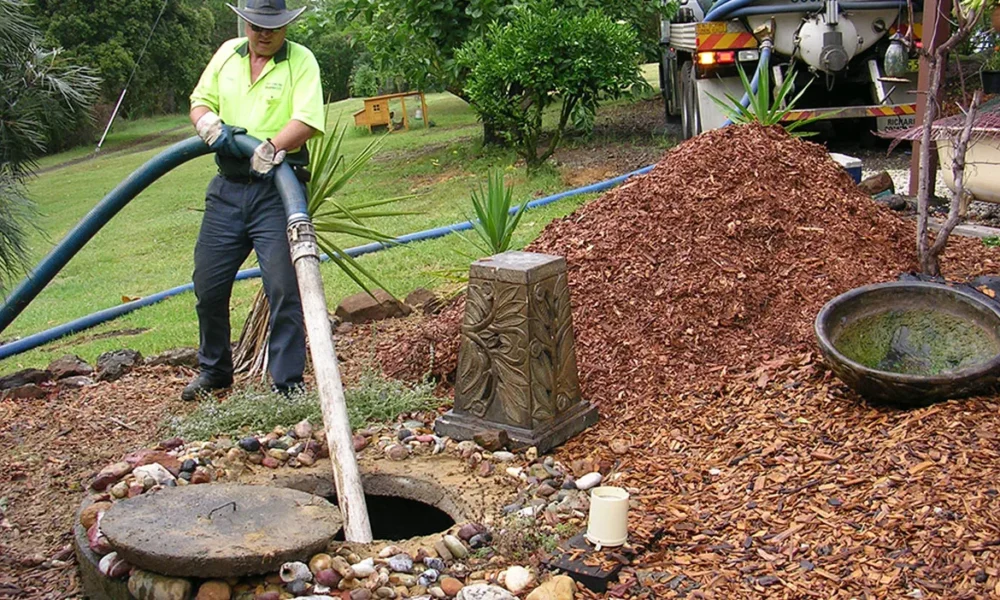
Common Misconceptions About Septic Tank Pumping Debunked
Septic tanks are an essential part of many homes, providing a reliable way to treat and dispose of wastewater. However, there are several misconceptions surrounding septic tank pumping that can lead to misunderstandings and improper maintenance practices. In this article, we will debunk some of the most common misconceptions about septic tank pumping to help homeowners make informed decisions and ensure the health and longevity of their septic systems.
Section 1: Septic Tank Pumping Is Only Necessary When There’s a Problem
Misconception: Many homeowners believe that septic tank pumping is only necessary when they experience problems like backups or foul odors.
Debunked: Regular septic tank pumping is essential, even when there are no apparent issues. Waiting until a problem arises can lead to more extensive damage and costly repairs. Routine pumping removes accumulated solids and scum, preventing system overload and maintaining efficient wastewater treatment.
Section 2: Septic Tank Additives Eliminate the Need for Pumping
Misconception: Some homeowners believe that septic tank additives or treatments can replace the need for septic tank pumping.
Debunked: While septic tank additives can aid in waste decomposition, they do not eliminate the need for pumping. Solids will still accumulate over time, and pumping is necessary to remove these solids and maintain the septic tank’s capacity and functionality. Additives should be used as a supplement to regular maintenance, not a replacement.
Section 3: Septic Tank Pumping Is a DIY Task
Misconception: Some homeowners think that they can pump their septic tank themselves, saving money on professional services.
Debunked: Septic tank pumping is not a DIY task. It requires specialized equipment and expertise. Attempting to pump your septic tank without the necessary knowledge and equipment can result in improper cleaning and potential damage to your septic system. It is essential to hire a licensed and experienced septic service provider for this task.
Section 4: All Septic Tanks Need Pumping at the Same Frequency
Misconception: Some homeowners believe that all septic tanks need pumping at the same frequency, regardless of their size or usage.
Debunked: The frequency of septic tank pumping varies depending on several factors, including the size of the tank, the number of occupants in the home, and water usage. There is no one-size-fits-all schedule for septic tank pumping. Consulting with a professional septic service provider is crucial to determine the ideal pumping frequency for your specific system.
Section 5: Septic Tank Pumping Is Harmful to the System
Misconception: Some homeowners worry that septic tank pumping can harm their septic system by disrupting the balance of bacteria in the tank.
Debunked: Proper septic tank pumping does not harm the system. In fact, it is essential for maintaining a healthy septic system. When done correctly, pumping removes excess solids and scum while preserving the beneficial bacteria necessary for waste decomposition. Professional septic service providers are trained to perform pumping without disrupting the bacterial balance in the tank.
Section 6: Septic Tank Pumping Is Expensive
Misconception: Many homeowners believe that septic tank pumping is an expensive maintenance task.
Debunked: While there is a cost associated with septic tank pumping, it is a necessary and cost-effective investment in the longevity of your septic system. Regular pumping prevents more expensive problems like system failure, drain field damage, and sewage backups. The cost of pumping is a fraction of what you might spend on repairs or replacements if your system fails due to neglect.
Section 7: Additives Can “Repair” a Failing Septic System
Misconception: Some homeowners believe that septic tank additives can revive or repair a failing septic system.
Debunked: Septic tank additives are not a solution for a failing system. If your septic system is experiencing significant issues or failure, additives will not address the root cause of the problem. In such cases, it is crucial to consult with a professional septic service provider to assess the system’s condition and determine the necessary repairs or replacement.
Section 8: Pumping Removes All Bacteria from the Septic Tank
Misconception: There is a misconception that septic tank pumping removes all the bacteria in the tank, leading to poor waste decomposition.
Debunked: Proper septic tank pumping removes excess solids and scum but does not eliminate all the bacteria in the tank. The beneficial bacteria necessary for waste breakdown will continue to thrive in the septic environment. Septic service professionals are trained to ensure that the bacterial balance in the tank remains intact during pumping.
Section 9: Septic Tank Pumping Is Only for Older Homes
Misconception: Some homeowners believe that septic tank pumping is only necessary for older homes with aging septic systems.
Debunked: Septic tank pumping is essential for both older and newer homes with septic systems. The age of the system is not the sole determinant of when pumping is required. Regular maintenance, including pumping, is vital for all septic systems to prevent issues and prolong their lifespan.
Section 10: Septic Tank Pumping Can Be Delayed Indefinitely
Misconception: Some homeowners think that septic tank pumping can be postponed indefinitely without consequences.
Debunked: Delaying septic tank pumping can lead to system overload, damage, and costly repairs. It is crucial to adhere to a recommended pumping schedule determined by a professional septic service provider to maintain the health and functionality of your septic system.
Conclusion
Understanding the truth about septic tank pumping is essential for responsible homeownership. Debunking these common misconceptions helps ensure that you make informed decisions about the maintenance of your septic system. Regular septic tank pumping, performed by a qualified professional, is a fundamental part of preserving your septic system’s efficiency, preventing problems, and saving you money in the long run. Don’t fall victim to these misconceptions; prioritize proper septic system care to enjoy trouble-free wastewater management for years to come.